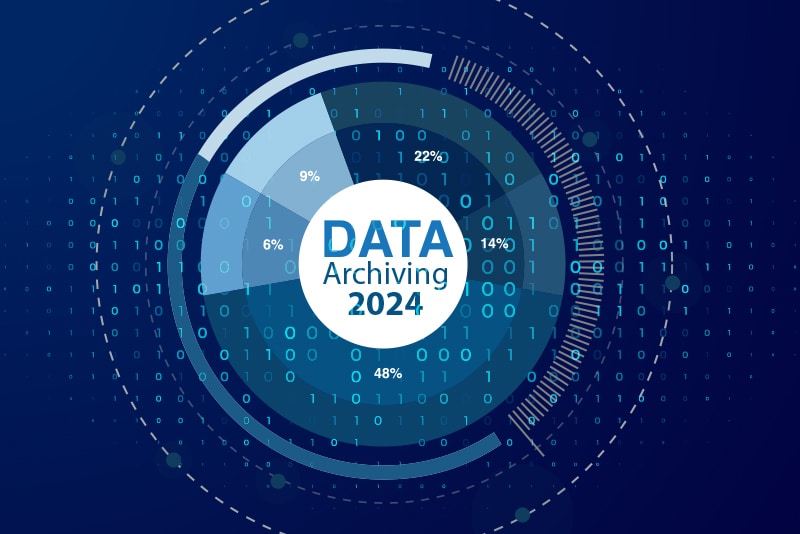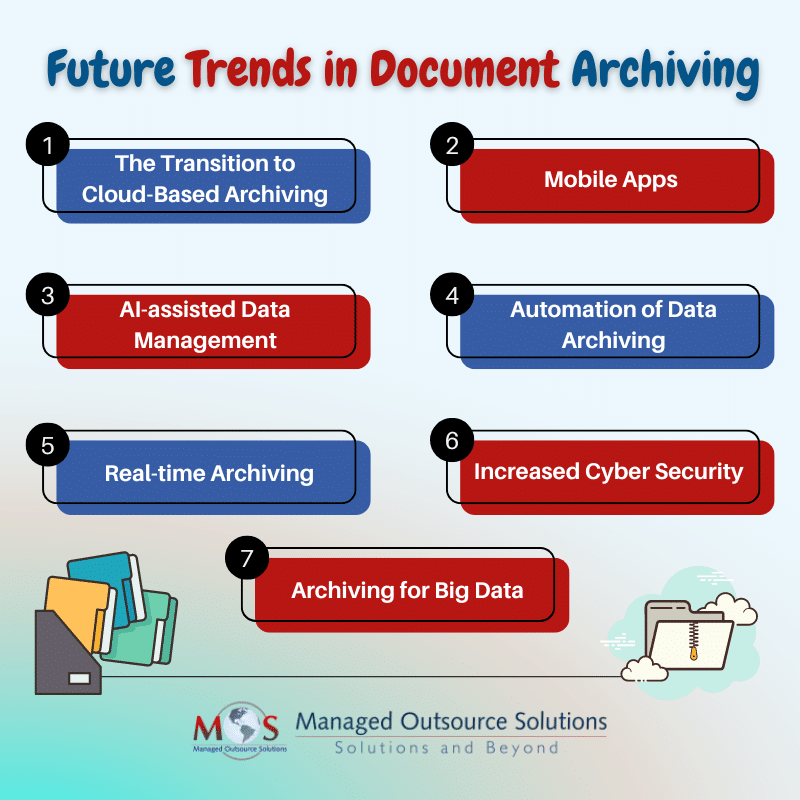As businesses continue to generate massive amounts of data, effective data archiving becomes increasingly critical. In 2024, the emphasis on secure, efficient, and easily accessible archives will be stronger than ever. One key technology that can help with this is document scanning services. By converting paper documents into digital formats, document scanning services enable businesses to store their information in a more organized, secure, and accessible manner. This digital transformation streamlines archiving, reduces physical storage costs, and ensures that essential data is easily retrievable when needed. In the evolving world of data archiving, digitization is not just a trend but a necessity for any business.
What Do You Mean by Document Archiving?
Managing archives can be difficult at times. Businesses need to move paper records to a long-term storage location, keep them there until their expiration date, retrieve them as needed, and then destroy them when their useful life is up. Scanning old paper documents to convert them into digital text files or photos is known as “archive document scanning.” This keeps archived files in an electronic format for future reference. The archival process is made less time-consuming, less labor- intensive, less resource-intensive, and less expensive by using electronic storage.
Future of Document Archiving
- The Transition to Cloud-based Archiving: The use of cloud computing for data management has been growing rapidly, and more companies will probably start moving their archived data to the cloud in 2024. Many benefits come with cloud-based archiving, such as scalability, cost-effectiveness, and global accessibility. Cloud archiving enables businesses to store enormous volumes of data without the overhead associated with traditional on-premise archiving, which necessitates large infrastructure investments and upkeep. Furthermore, enhanced security features are included with cloud services, guaranteeing that the stored data is shielded from breaches and illegal access.
- Mobile Apps: Users can access, manage, and retrieve archived data directly from their mobile devices with the help of mobile apps, which provide an unmatched level of flexibility and convenience. Apps for mobile archiving make sure that crucial data and documents are always accessible. Basic functions like file access, search capabilities, and cloud synchronization are provided by a large number of mobile archiving apps. But there’s still space for development in a few crucial areas.
- AI-assisted Data Management: Data archiving will be greatly affected in the future by artificial intelligence (AI). Businesses will be able to classify, index, and retrieve archived data with previously unheard-of speed and precision because of AI-powered solutions. AI algorithms will automatically arrange data based on content rather than requiring human sorting and searching, making it simpler for businesses to find relevant information. AI can also spot trends and highlight security issues in the preserved data, guaranteeing adherence to legal requirements. This invention will significantly improve data archiving systems’ effectiveness and security.
- Automation of Data Archiving: Automation will simplify procedures and lessen the need for human involvement, revolutionizing data archiving. Businesses can effectively store, handle, and retrieve massive volumes of data with little to no human intervention thanks to sophisticated automation technology. Automated archiving solutions can reduce errors, enhance data accessibility, apply retention requirements, and categorize files in accordance with industry regulations. Automation greatly increases productivity by doing away with labor-intensive manual chores, freeing up businesses to concentrate on higher-value work.
- Real-time Archiving: Data may be saved instantly as it is created or modified with real-time archiving, which also lowers the chance of data loss and provides fast access. Businesses that deal with a lot of data or need accurate data that is up to date must use this strategy. Real-time archiving will become more dependable and efficient as storage technology, network speeds, and artificial intelligence (AI) continue to progress. As data is archived, AI may assist by automatically classifying and indexing it, and faster networks allow for seamless transmission.
- Increased Cyber Security: Strong cybersecurity procedures are essential to safeguard historical data as cyber threats increase. Sensitive data is currently protected by encryption, access controls, and frequent security audits. But more robust protections, such as sophisticated cryptography and encryption methods impervious to attacks from quantum computing, will be needed in the future. Strict multi-factor verification and authentication procedures will increase the security of archived file access. Businesses will need to make investments in state-of-the-art cybersecurity systems by 2024 to guarantee the confidentiality, integrity, and defense of their stored data from ever-more-devious cyberattacks.
- Archiving for Big Data: Scalable and effective archiving solutions are crucial for managing and storing the massive amounts of data that businesses produce. The sheer volume and complexity of big data may be too much for traditional archiving systems to handle, necessitating the need for more sophisticated, adaptable solutions. Future archiving technologies will prioritize scalability, providing cloud-based or hybrid systems that can store enormous volumes of data without sacrificing performance or accessibility. In order to maximize data organization and retrieval, these systems will also include machine learning, guaranteeing that companies can efficiently handle and leverage their expanding data reserves.
The future of data archiving in 2024 is defined by innovation, security, and sustainability. Businesses will increasingly rely on document scanning services to digitize and streamline their archives, making data management more efficient and eco-friendlier. With the integration of AI, cloud-based storage, and advanced cybersecurity, the next generation of data archiving will be faster, safer, and more reliable than ever before.





